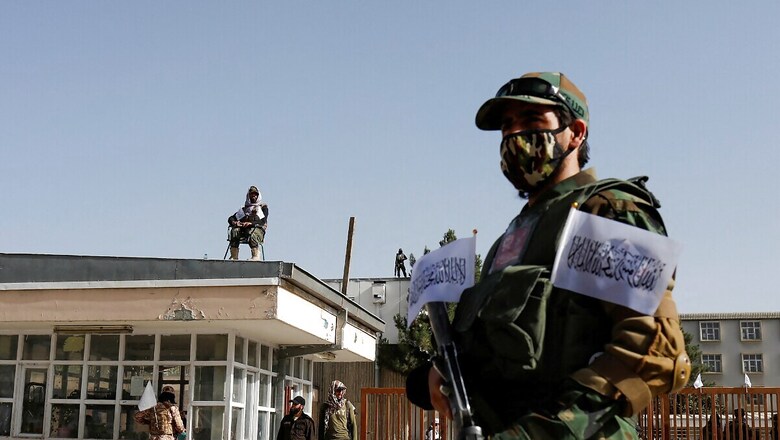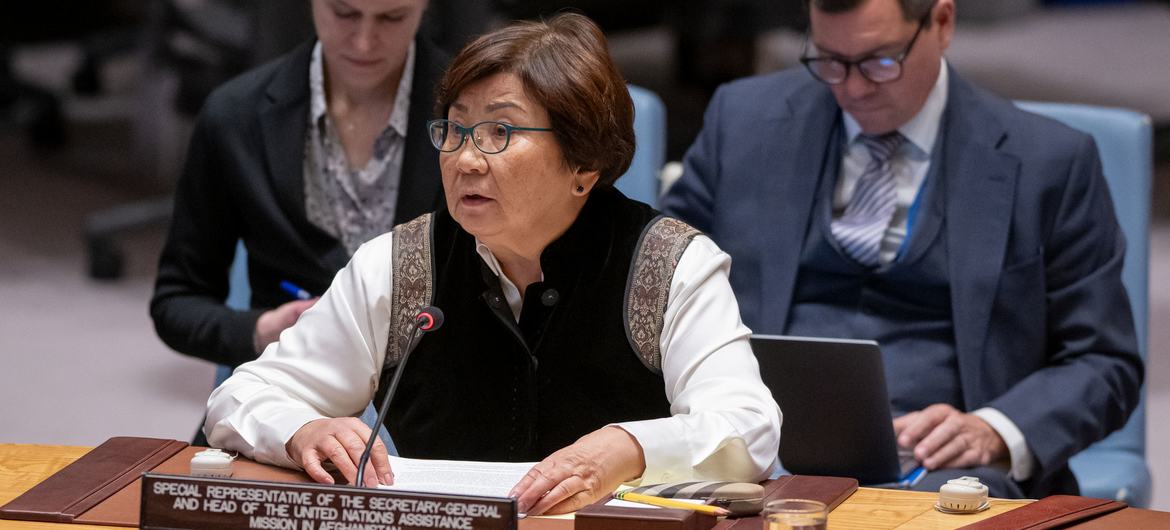
views
The UN Security Council (UNSC) on Wednesday was told that a lack of progress in resolving human rights issues is one of the key reasons behind the current impasse between Afghanistan and the international community. In a briefing to the Security Council in New York, the UN Special Representative for the country Roza Otunbayeva, underlined the need for greater engagement with the Taliban.
Otunbayveva, who also heads the UN Assistance Mission in Afghanistan (UNAMA), told the Security Council that the human rights situation in the country is characterised by systemic discrimination against women and girls, repression of political dissent and free speech, a lack of meaningful representation of minorities, and ongoing instances of extrajudicial killing, arbitrary arrests and detentions, torture and ill-treatment.
“Accepting and working to uphold the international norms and standards, as set out in the UN Treaties that Afghanistan has ratified, will continue to be a non-negotiable condition for a seat at the United Nations,” she said in a statement, a copy of which was posted on UNAMA website.

The de facto authority in Afghanistan which took over the country in August 2021, has indicated “a preference for bi-lateral approaches to multilateral ones,” she said, as they continue to maintain that bans on girls’ education and women’s employment are internal matters even though these edicts contravene current treaty obligations. She feared this would only prolong the impasse that the report intends to resolve.
Two factors approach
Otunbayeva said any future approach must be guided by two factors, namely a durable and more detailed international consensus on Afghanistan and making far greater use of the de facto authorities’ willingness to engage in dialogue with members of the international community. “Dialogue does not legitimize. It can be used to express disapproval yet encourage change,” she said. “We have often spoken of the need to learn lessons from our engagement since August 2021. One lesson, I believe, is that there has simply not been enough of it. There must be more direct engagement with the de facto authorities, including in Kabul.”
Otunbayeva also updated the Council on developments related to Afghan and regional security, humanitarian affairs, and other such issues. She noted that the Shia community remains at disproportionate risk of harm, with 39 members killed in three attacks in recent months, all of which were claimed by the ISIL-KP terrorist group. Nine people were also killed in three further targeted attacks against Shia clerics in Herat. Meanwhile, regional countries are concerned about additional possible threats emanating from Afghanistan.
What India said
Speaking at the UN high table, India extended its “unwavering commitment” to the people of Afghanistan, stressing the need for continued international attention and support for the country. “As a contiguous neighbour to Afghanistan, a friend to its people, and as a country with direct stakes in ensuring peace and stability in Afghanistan, allow me to place the following observations before the council,” Ambassador Kamboj said at the briefing.
On India’s behalf, she expressed particular concern about the deteriorating humanitarian conditions exacerbated by natural disasters, including massive earthquakes this year. “The situation in Afghanistan is still one of concern. The deteriorating humanitarian situation, compounded by natural disasters such as the earthquake of October 2023, have had a devastating impact on the lives of the people,” she said. The Indian diplomat also highlighted that the importance of the international community not losing focus on Afghanistan during these challenging times.




















Comments
0 comment